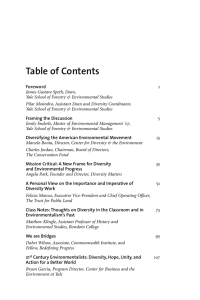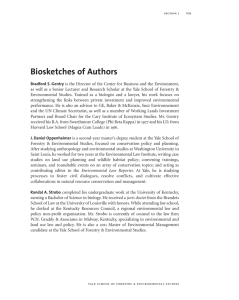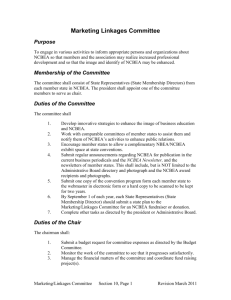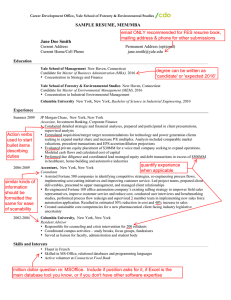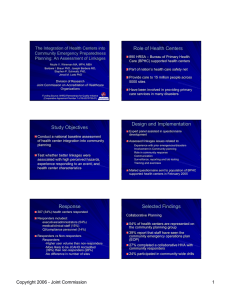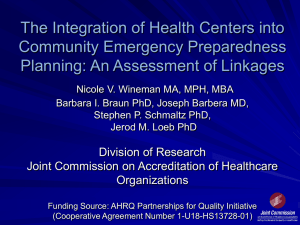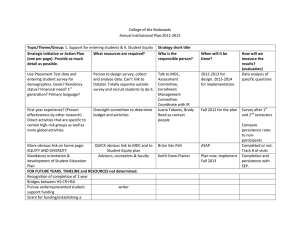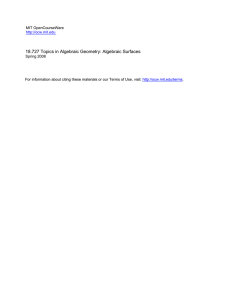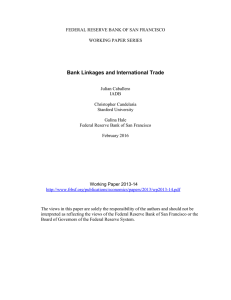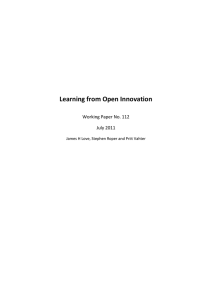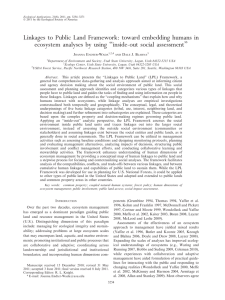Note from the editor
advertisement
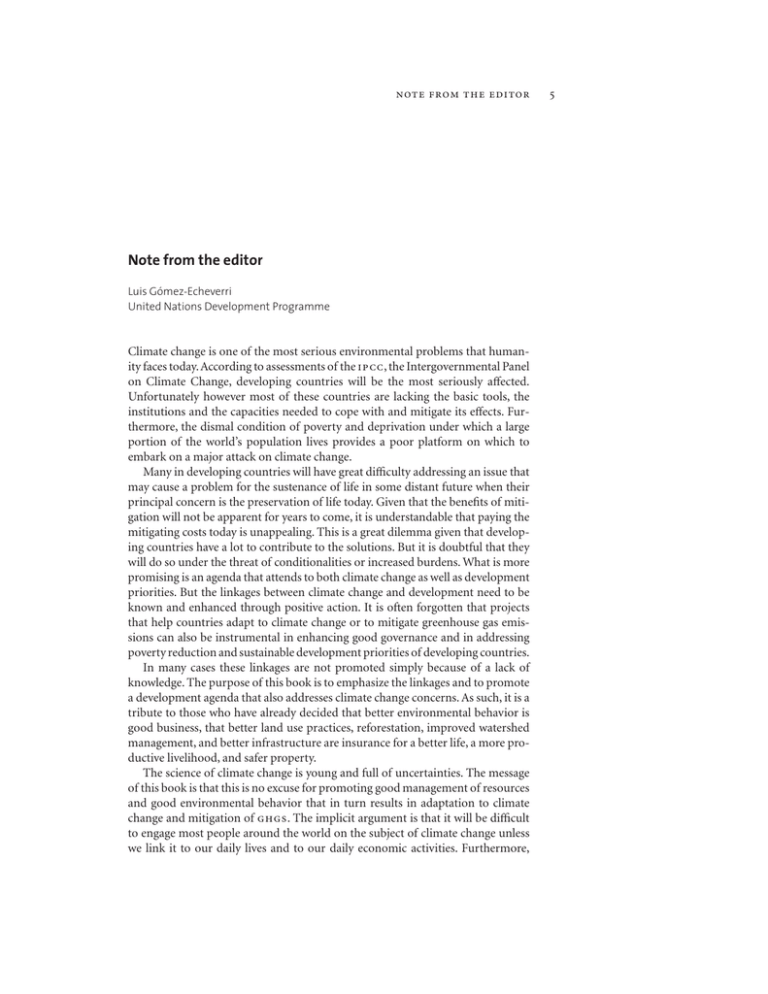
Note from the editor Luis Gómez-Echeverri United Nations Development Programme Climate change is one of the most serious environmental problems that humanity faces today. According to assessments of the , the Intergovernmental Panel on Climate Change, developing countries will be the most seriously affected. Unfortunately however most of these countries are lacking the basic tools, the institutions and the capacities needed to cope with and mitigate its effects. Furthermore, the dismal condition of poverty and deprivation under which a large portion of the world’s population lives provides a poor platform on which to embark on a major attack on climate change. Many in developing countries will have great difficulty addressing an issue that may cause a problem for the sustenance of life in some distant future when their principal concern is the preservation of life today. Given that the benefits of mitigation will not be apparent for years to come, it is understandable that paying the mitigating costs today is unappealing. This is a great dilemma given that developing countries have a lot to contribute to the solutions. But it is doubtful that they will do so under the threat of conditionalities or increased burdens. What is more promising is an agenda that attends to both climate change as well as development priorities. But the linkages between climate change and development need to be known and enhanced through positive action. It is often forgotten that projects that help countries adapt to climate change or to mitigate greenhouse gas emissions can also be instrumental in enhancing good governance and in addressing poverty reduction and sustainable development priorities of developing countries. In many cases these linkages are not promoted simply because of a lack of knowledge. The purpose of this book is to emphasize the linkages and to promote a development agenda that also addresses climate change concerns. As such, it is a tribute to those who have already decided that better environmental behavior is good business, that better land use practices, reforestation, improved watershed management, and better infrastructure are insurance for a better life, a more productive livelihood, and safer property. The science of climate change is young and full of uncertainties. The message of this book is that this is no excuse for promoting good management of resources and good environmental behavior that in turn results in adaptation to climate change and mitigation of . The implicit argument is that it will be difficult to engage most people around the world on the subject of climate change unless we link it to our daily lives and to our daily economic activities. Furthermore, 5 6 it argues for a strengthened international cooperation system that can help strengthen these linkages. While most books concentrate either on the science or on the policy side of climate change, few try to bring issues related to both under one volume as this one. Thus the decision to present the subject of climate change in a way that brings together issues of science and the linkages to important aspects of development, capacity building and technology transfer, as well as policy options. In the last section, the book focuses on the Latin American region and some of its challenges and the efforts of the region to cope with the subject of climate change. This a region with great challenges but also with a great opportunity to do it right. As it proceeds to make billions of dollars of investments on energy and technology options in the decades to come, each decision will be a vote either in favor or against the environment, not only of the region but also of the globe. Acknowledgements There are many who have contributed to the process of producing and editing of this volume, many of whom are not be mentioned here, but will be thanked in person for their valuable contribution to my environmental education and interests, which in turn have led me to compile and edit this volume. I would particularly like to thank the following organizations and individuals for their support in the long months leading to the completion of this volume: • The Yale School of Forestry and Environmental Studies, which has provided me the most important inspiration and support throughout my environmental education. • James Gustave Speth, former Administrator of the and current Dean of the Yale School of Forestry and Environmental Studies, who has been a role model for many of us for his dedication and commitment to the environment. • Elena Martinez, Assistant Director General and Director, Regional Bureau for Latin America and the Caribbean of the , whose vision and effective management is turning into a regional environmental powerhouse. • Jane Coppock, Assistant Dean of the Yale School of Forestry and Environmental Studies, without whose hands-on, intellectual support, and management this volume would not have been issued. • Melissa Goodall for her consistent reliability, and for her key role in the production management, brilliant copy-editing work, and effective management of the editor and contributing authors, without which this volume could have never been finalized. • Michael Gucovsky for his constant and effective support in getting this and many other projects successfully launched and completed. • Russell Shaddox and the production staff at of Yale University for enabling the timely completion of the volume, while maintaining an excellent standard of quality. • Gillian Bohrer, whose diligent proofreading and unswerving good cheer helped to bring this volume one step closer to perfection.
